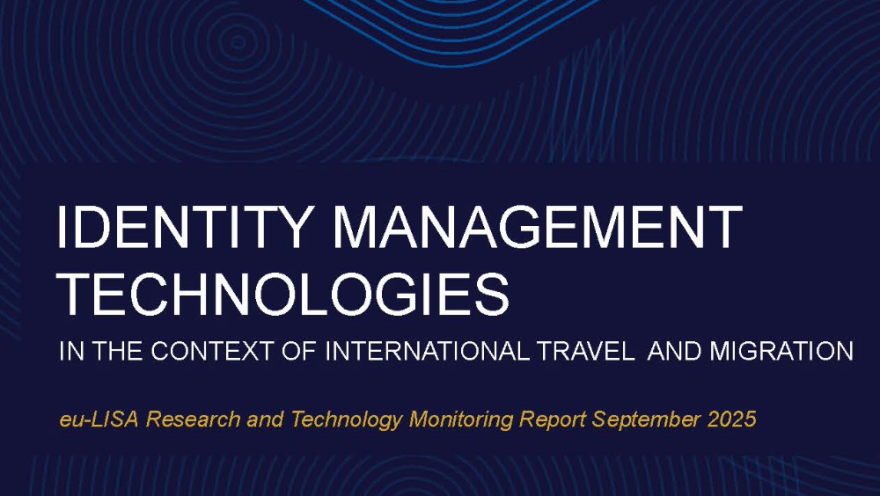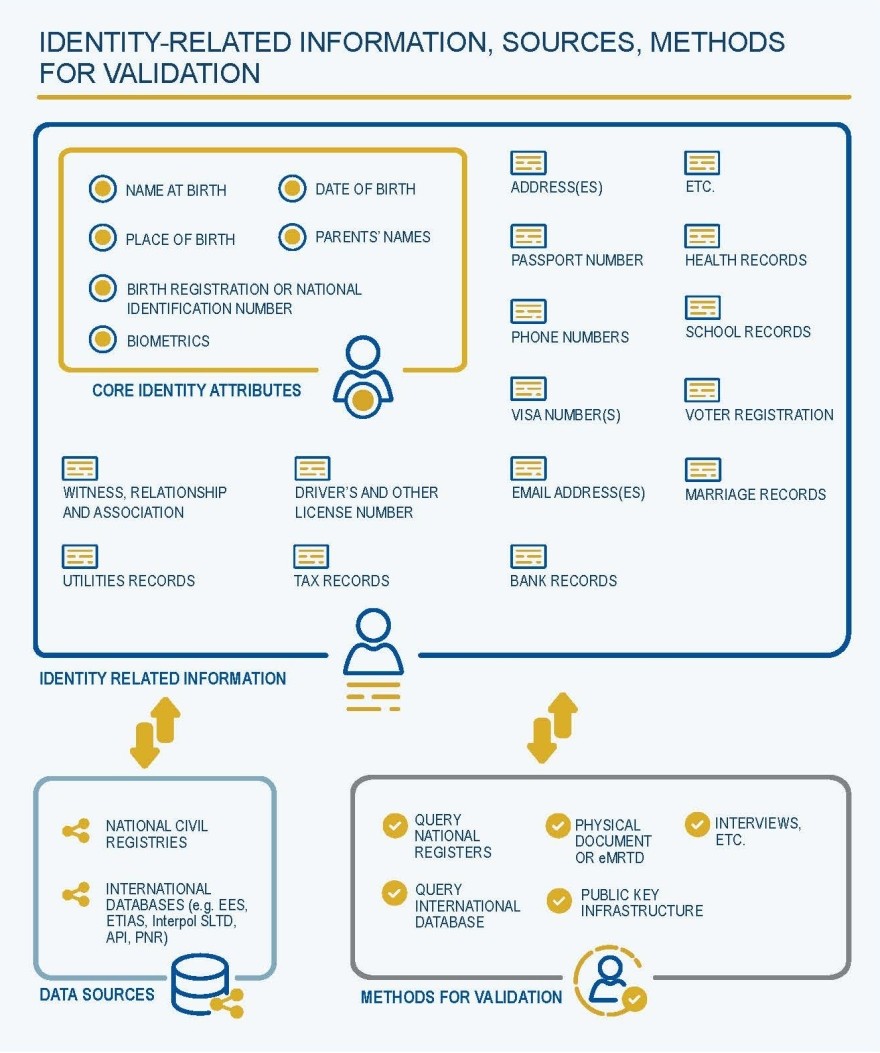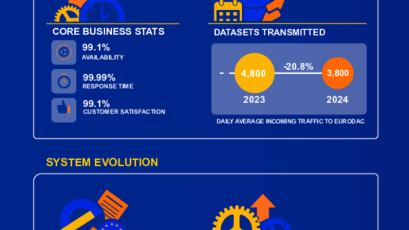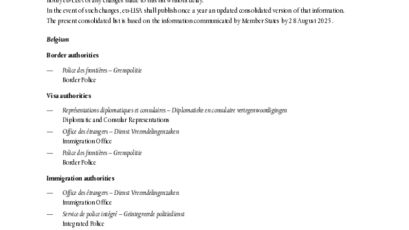Actions

eu-LISA has released its latest Research and Technology Monitoring Report, focusing on the fast-evolving field of identity management technologies in the context of international travel, migration and border security. The report provides a comprehensive overview of how innovations in this area are shaping the way people’s identities are established, verified and managed, both in Europe and globally.
Identity in the Digital Era
As mobility increases and more services move online, secure and interoperable identity systems are becoming essential to governance, security and access to rights. The report notes that over the past decade, eu-LISA has been entrusted with the development and management of the EU’s large-scale IT systems – SIS, VIS and Eurodac – that serve as the backbone of identity management for migration, asylum and border procedures. With the progressive roll-out of the Entry/Exit System (EES), the European Travel Information and Authorisation System (ETIAS), ECRIS-TCN and the interoperability components, the Union has entered a new era where identity verification can be carried out in near real time, helping to detect fraudulent or duplicate identities while facilitating legitimate mobility.
Emerging Technologies
The report examines how new technological solutions are reshaping identity management. Digital Travel Credentials, developed under ICAO standards, allow travellers to carry a secure digital version of their passport on a mobile device, which can be pre-verified before crossing borders. Remote enrolment solutions are also on the rise, making it possible for travellers to submit biometric and document data in advance using their own devices, thereby reducing congestion and waiting times at border crossing points.
At the same time, new approaches such as digital identity wallets and Self-Sovereign Identity models are giving individuals more control over their personal data, enabling them to decide how and when to share information when accessing services across borders. The report also highlights the use of blockchain-based solutions, tested in humanitarian contexts to provide reliable identity verification for undocumented or displaced persons. These developments are particularly important in ensuring that access to aid, financial services and other rights is not blocked by the lack of traditional identity documents.
Policy and Regulation
Alongside technological progress, the EU has been advancing its legal framework to support secure and interoperable digital identities. The revised eIDAS 2.0 Regulation introduces the European Digital Identity Wallet, which will allow citizens and residents to use a secure digital identity across Member States. The EU Digital Travel Application Regulation, adopted in October 2024, creates the possibility to submit identity data in advance for border checks, paving the way for faster and smoother travel. Looking further ahead, the Digitalisation of Visa Procedures Regulation, which will take effect in 2028, will enable a fully digital visa process that may integrate with both digital wallets and Digital Travel Credentials.
Risks and Resilience
While these technologies offer greater convenience and efficiency, they also come with new risks, particularly related to fraud and manipulation. The report warns of threats such as presentation attacks using masks or photos, morphing of biometric images, and AI-generated forgeries. To counter these, advanced methods including liveness detection, AI-driven fraud detection tools and EU-funded research projects such as D4FLY and iMARS are being developed and deployed. These innovations will help authorities verify identities more reliably while maintaining trust in digital processes.
The Road Ahead
The report concludes that the successful adoption of identity management technologies will require continuous attention to four key priorities: protecting privacy and fundamental rights, investing in robust biometric validation and fraud detection, ensuring common standards and interoperability across Member States, and monitoring the ethical and societal impacts of new solutions, especially for vulnerable groups such as asylum seekers.
By mapping technological trends, regulatory developments and security considerations, eu-LISA’s report provides valuable insights into how identity management is evolving in a digital world, and how Europe is preparing to meet both the opportunities and the challenges ahead.



